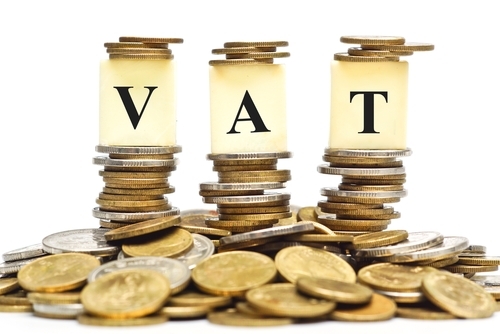Nearly two thirds of smaller businesses unaware of radical new VAT rules coming in from 1 Jan 2015.
Six in ten SMEs (those with less than £10 million turnover) are unaware of radical reforms to European VAT rules that will affect the supply of telecoms, broadcasting and electronic services, according to a new survey by KPMG.
From 1 January 2015, VAT rules for sales of telecoms, broadcasting and e-services to EU consumers are changing.
This means that VAT will no longer be charged and accounted for based on where the business supplier is established but according to the EU country where the customer belongs.
A KPMG survey of over 150 affected businesses revealed that, whilst larger companies are very much aware of the upcoming changes, 62 percent of smaller businesses did not know about the new 2015 VAT rules and 66 percent were not aware of the potential penalties associated with non-compliance.
Coupled with this general lack of awareness, the survey also revealed a worrying lack of clarity on the potential costs associated with getting ready for the changes.
Commenting on the findings, Mike Camburn, indirect tax partner at KPMG, said: “Despite efforts by tax authorities and advisors to notify and educate businesses, with less than two months before implementation of the new rules, there remain a significant number of affected businesses that are not aware of the 2015 VAT changes.”
The survey also revealed that 75 percent of respondents were considering raising their prices as a result of these new tax rules.
More than half (53 percent) were predicting price rises of between 2 and 3 percent, but over a quarter (26 percent) indicated increases of 5 percent or more.
Indeed, according to KPMG’s calculations, if affected businesses chose to pass on all the additional costs of complying with these new rules as well as the uplift in VAT itself, this would result in a price increase of up to 11 percent for affected services – particularly those sold to customers in EU countries with the highest VAT rates.
But the changes should be good news for the UK economy, which is set to benefit by around £300m.
This is because the VAT collected from UK customers will belong to the UK Treasury, rather than to the country where the supplier is established.
“The majority of e-services bought by UK consumers are currently not subject to UK VAT as many of these e-services are currently sold from countries such as Luxembourg where the VAT rate is very low – usually 15 percent but only 3 percent for e-books,” said Amanda Tickel, tax partner at KPMG in the UK, explained.
“This means the UK Treasury could benefit by around £300m from 2015, but someone has to lose; either the suppliers of affected services will see significantly reduced profit or consumers will see increased prices as some of the extra VAT cost is passed on. Our survey strongly suggests that price rises will form at least part of many businesses’ responses.”
Businesses may restrict certain sales some countries as a result of the VAT rule changes
The survey suggests that, for some businesses, the answer to handling the compliance burden associated with the changes to the VAT rules may be to stop selling to certain customers altogether. The results revealed that over a quarter (28 percent) of affected businesses are considering limiting sales in particular EU member states in order to reduce their compliance burden.
According to KPMG, this approach may be a result of the complexity of the EU VAT regime.
At present, VAT rates across the EU range from 15 percent to 27 percent (average is 21.54 percent).
As a result of the reforms, businesses will move from charging one rate reflecting the location from which they are making the supply, to having to charge different VAT rates according to where their customers are based.
According to Amanda Tickel, the mechanics of how to comply with the new rules are extremely challenging.
“The new VAT rules mean affected companies face an increased compliance burden and billing becomes more difficult to manage,” she said. “In the first instance, businesses need to ensure their systems can capture the right sort of information to evidence where each customer lives and apply the correct VAT rate.
“Coupled with this, those affected urgently need to decide how they’ll report and pay the VAT.”
There are a number of ways businesses can report and pay the VAT under the new rules: through local registrations, outsourcing to a third party, or via the ‘mini one stop shop’ – an online service through which businesses can register for VAT in one country and account for VAT on supplies to customers in other member states.
All of these options will almost certainly require changes to customer-facing and back office systems and, according to KPMG, those businesses yet to get to grips with preparing for these new rules really haven’t left themselves very much time to address these crucial issues.






